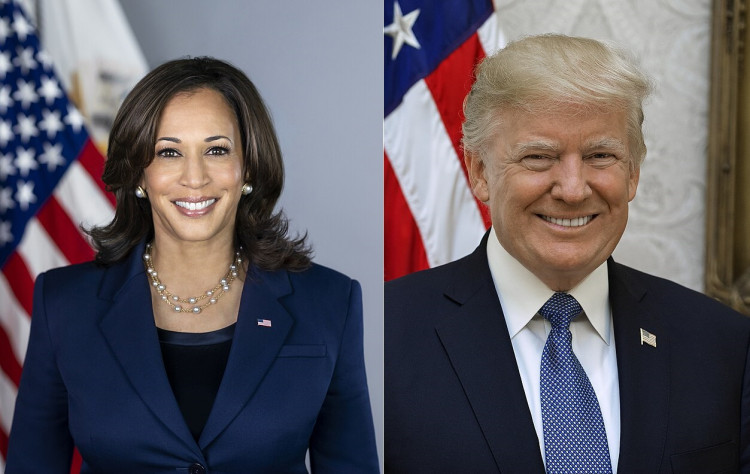In a surprising show of consensus, supporters of Vice President Kamala Harris and former President Donald Trump have found common ground on two key immigration issues: the need for strengthened border security and the expansion of highly skilled immigration.
According to a recent Pew Research Center survey, a significant majority of both Trump and Harris voters support tougher security measures at the U.S.-Mexico border. The survey also reveals broad agreement on increasing the number of skilled immigrants allowed into the country, signaling a rare moment of bipartisan alignment in an otherwise deeply divided political landscape.
The Pew study, which surveyed over 9,200 adults, including more than 7,500 registered voters, found that 96% of Trump supporters and 80% of Harris backers are in favor of tightening border security. This convergence comes as both parties prepare for the 2024 presidential election, with immigration emerging as a central issue in the campaigns. These findings indicate a shift in the public's attitude toward immigration, where even traditionally divergent political groups see eye-to-eye on some aspects of policy.
The Harris campaign has increasingly emphasized border security, reflecting a broader shift in the Democratic Party's stance. In contrast to 2020, when then-candidate Joe Biden criticized Trump's hardline policies, Harris has adopted a more moderate tone. Her campaign has featured ads focusing on her record prosecuting drug cartels as California's attorney general, and she recently made her second trip to the U.S.-Mexico border since becoming vice president. This approach highlights a strategic effort by Democrats to address concerns over the surge in irregular migration that has dominated political discourse in recent years.
Taylor Rogers, a spokesperson for Trump's campaign, reiterated the former president's consistent position on immigration. "President Trump has been clear in encouraging legal immigration while stopping the invasion of illegal immigrants," Rogers said, emphasizing that Trump has long advocated for a stronger border and more rigorous immigration enforcement.
Despite the shared views on border security and skilled immigration, significant differences remain between the two camps on other immigration policies. For instance, 88% of Trump supporters favor mass deportations of undocumented immigrants, a cornerstone of Trump's immigration platform. In contrast, only 27% of Harris supporters support such measures, with 72% opposed to large-scale deportations. This stark divide underscores the ongoing ideological battle over how to address the millions of undocumented immigrants currently living in the U.S.
The divergence extends to perceptions of legal immigration's impact on the economy. While 62% of Harris voters believe legal immigrants benefit the U.S. economy, only 31% of Trump supporters share this view. Additionally, Trump voters are far more likely to view illegal immigration as a driver of increased crime, with 92% believing it worsens crime rates, compared to only 37% of Harris voters.
The evolution in Harris's immigration stance reflects broader trends within the Democratic Party. While Democrats continue to support pathways to citizenship for long-standing undocumented immigrants and advocate for protections for groups like Dreamers, there is a growing recognition of the need for stronger border enforcement. At the 2024 Democratic National Convention, Harris pledged to revive a bipartisan Senate border security bill that had once been supported by Republicans but was ultimately abandoned. This represents a shift from previous Democratic platforms, which had focused more on humanitarian approaches to immigration.
Meanwhile, Trump has maintained his hardline rhetoric on immigration, describing the situation at the southern border as an "invasion" and frequently calling for mass deportations. His campaign has continued to hammer on the need for strict immigration controls, framing unauthorized immigration as a direct threat to U.S. security and jobs.
Despite the areas of agreement, the political divide on immigration remains vast. Trump has pledged to limit legal immigration, including reducing the number of family-based visas and scaling back refugee admissions. In contrast, Harris supports expanding legal immigration pathways, including increasing the number of employment-based visas and providing protections for immigrants in vulnerable situations, such as refugees and those granted Temporary Protected Status (TPS).
The survey results, particularly the bipartisan support for skilled immigration, offer a glimpse into how immigration policy might evolve post-2024. However, both candidates face significant challenges in advancing their respective agendas. Congressional gridlock, legal challenges, and public opinion will all play a role in shaping the next administration's ability to deliver on campaign promises.






